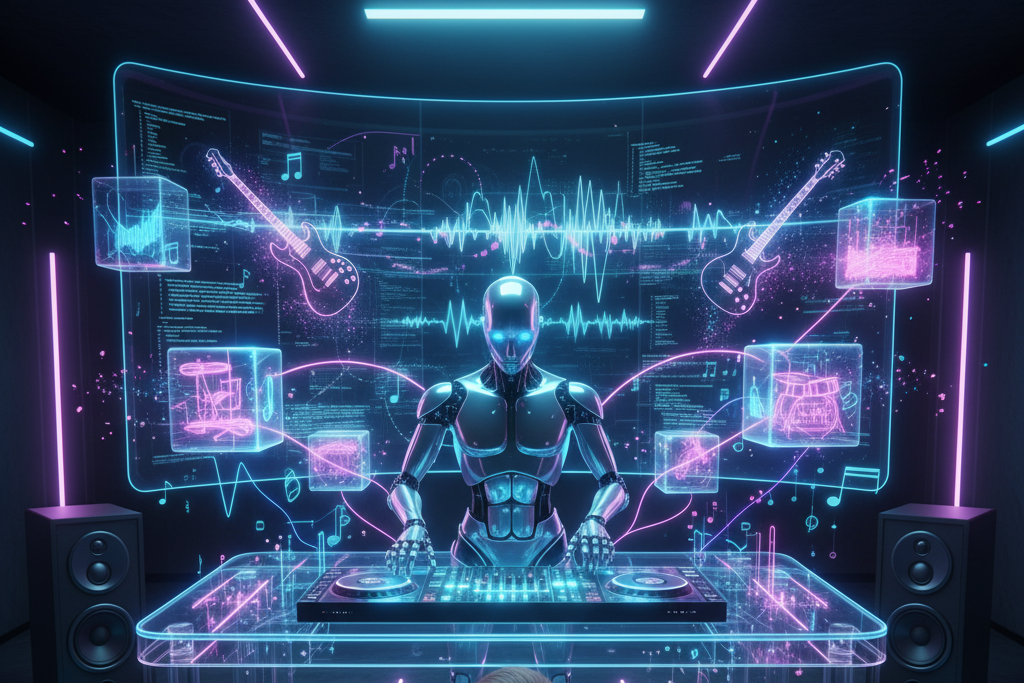
The exponential rise of AI-generated music is officially a torrent, according to recent figures from the streaming service Deezer. The company revealed that it is now seeing roughly 50,000 fully AI-generated tracks uploaded to its service every single day. This latest update shows a staggering climb from earlier in the year: in January, the figure stood at 10,000 tracks daily (10% of all uploads), but by now, that number accounts for a significant 34% of all music delivered. This rapid volume growth raises immediate questions about the authenticity and regulation of the music we stream.
The Blurring Line: Can You Tell the Difference?
Just how good is this GenAI music? Deezer sought answers by commissioning a survey from Ipsos, involving 9,000 people across eight countries including the US, UK, and Japan. The results were striking: respondents were played two AI-generated tracks and one human-made song, and 97% failed the test to correctly identify the AI content. While some regional variation existed—5% of Brits succeeded versus only 1% of Japanese respondents—the overall inability of listeners to differentiate the music reflects the current sophisticated state of Generative AI production.
Listener Demands for Regulation and Artist Protection
Even if they can’t spot AI music, listeners have strong opinions on how it should be handled. The survey found that 80% of users think AI tracks should be clearly labeled, allowing them to make an informed choice. This aligns with Deezer’s current policy of using an in-house detection tool to provide such labels. Furthermore, deep concerns over ethics and economics emerged: 70% agreed that fully AI-generated music “threatens the livelihood of current and future artists,” and 69% supported the idea that “payouts for 100% AI-generated music should be lower than for human-made music.” Deezer CEO Alexis Lanternier affirmed this user sentiment, stating, “The survey results clearly show that people care about music and want to know if they’re listening to AI or human made tracks or not.”
With 50,000 AI tracks dropping daily and nearly all listeners unable to identify them, the streaming landscape is changing fast. Deezer is already taking steps, such as excluding GenAI music from algorithmic recommendations and royalty payouts in cases of streaming fraud. Yet, the company is strongly hinting at further action to meet listener demands regarding artist protection and equitable payouts. As Deezer noted, “Potential future actions, including updating our supplier policy and removing / demonetising content need to be based on careful consideration.” It appears the industry is bracing for a necessary shift in how this new wave of content is governed.








